Tuesdays: From Silence to Pandemonium
Art Theatre Guild and Japanese Underground Cinema
By Junko Yamazaki and Daniel Johnson
Co-organized with the Japan Foundation and co-sponsored by the Committee on Japanese Studies of the Center for East Asian Studies
And a special thanks to Go Hirasawa for curatorial advice and assistance
Originally founded in 1961 to exhibit foreign arthouse cinema, Art Theatre Guild (ATG) provided an alternative form of film culture in Japan for young ambitious filmmakers, artists, literati, performers, musicians and critics to explore new understandings of cinema and forms of artistic collectives against the backdrop of the decline of the major film studios. It took full-fledged shape when it turned to Japanese film production in 1967. While partially subsidized by one of Japan's major studios, Toho, ATG was largely free of the commercial and artistic constraints imposed by these studios, and it gave rise to some of the most creative and heterogeneous, at once absurd and compelling, crafts of filmmaking practices in the history of cinema.
While ATG's line-up includes some of the most refined works of well-known Japanese New Wave directors and masterpieces by the wizards of genre films to evangelists of all sorts of extremism–taken to be politics, pornography, and their illicit children–and provide a rich source of the iconography of the Japanese subcultures and underground movements, many of the films have remained infrequently shown both inside and outside of Japan. This film series offers a rare, kaleidoscopic glimpse into the ATG's productions, along with other contemporary underground cinema.
2013-04-02 @ 7:00 PM
Funeral Parade of Roses

(Matsumoto Toshio, 1969) · Matsumoto's first feature is one of the most widely known ATG films. Peter (Kyoami from Ran) stars as Eddie, a transgender performer at a Tokyo nightclub who gets caught up in a rivalry with another hostess for the bar owner's affections. Eddie's name is a play on Oedipus Rex, which the film is something of a parody of. Matsumoto oscillates between documentary and fiction via interruptions to the narrative that blend experimental filmmaking with 1960s subculture. Reportedly a fan of the film, Kubrick borrows from one sequence in his Clockwork Orange.
runtime: 107 min format: Archival 16mm
2013-04-09 @ 7:00 PM
Ecstasy of The Angels
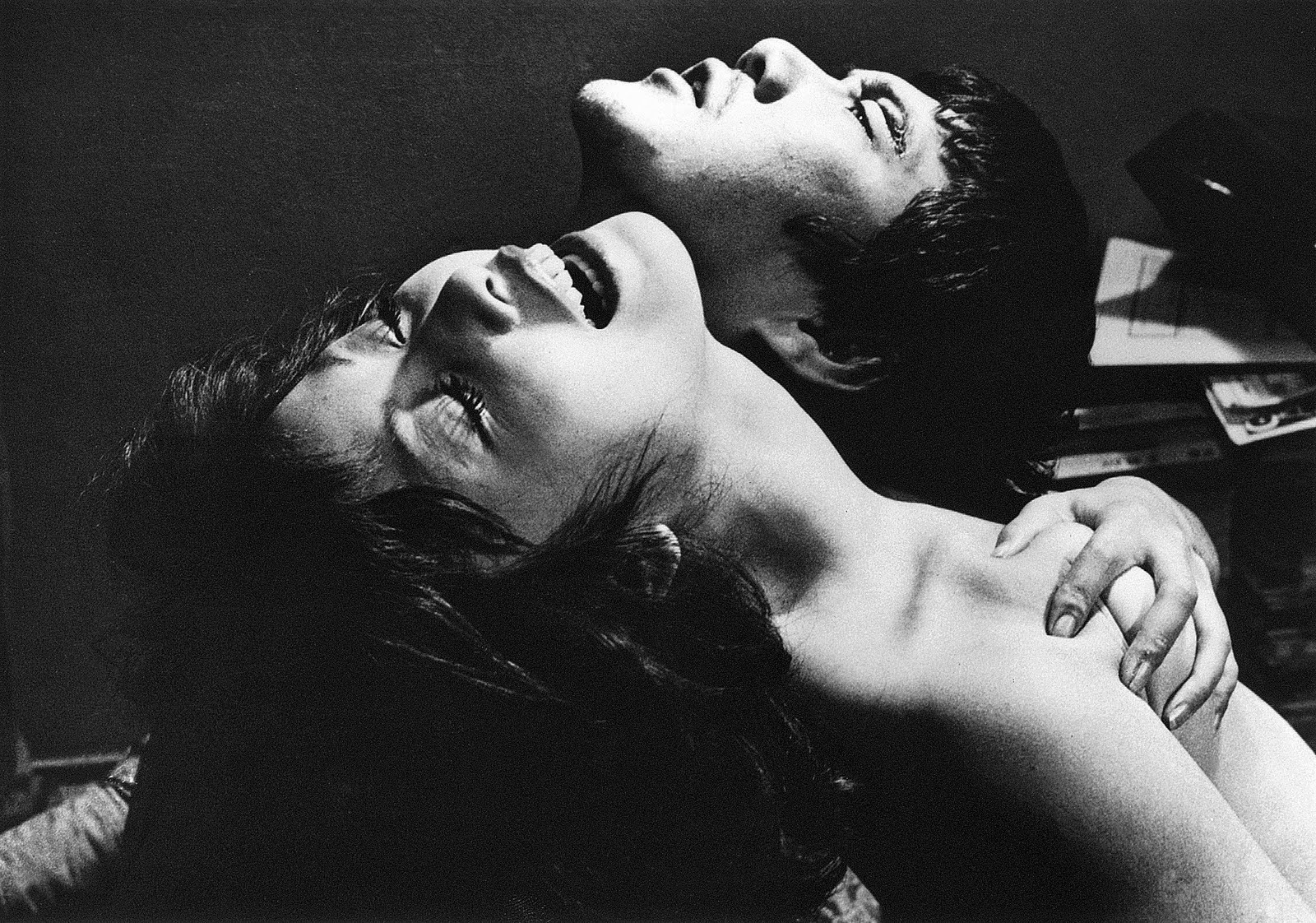
(Wakamatsu Koji, 1972) · Militant revolutionary politics and sex collide in ATG's most controversial feature. Due in part to the participation of actual revolutionaries in production, the film met with protest against screening it at the main ATG theater, near the police station recently hit by a guerrilla-bomb. The catastrophic massive bomb attacks across Tokyo in the final scene initiated by the Yosuke Yamashita Trio's frantic free jazz performance blending into the ecstatic cry of the female leader, is cinematic sensorial assault par excellence.
runtime: 89 min format: 35mm
2013-04-16 @ 7:00 PM
The Ceremony
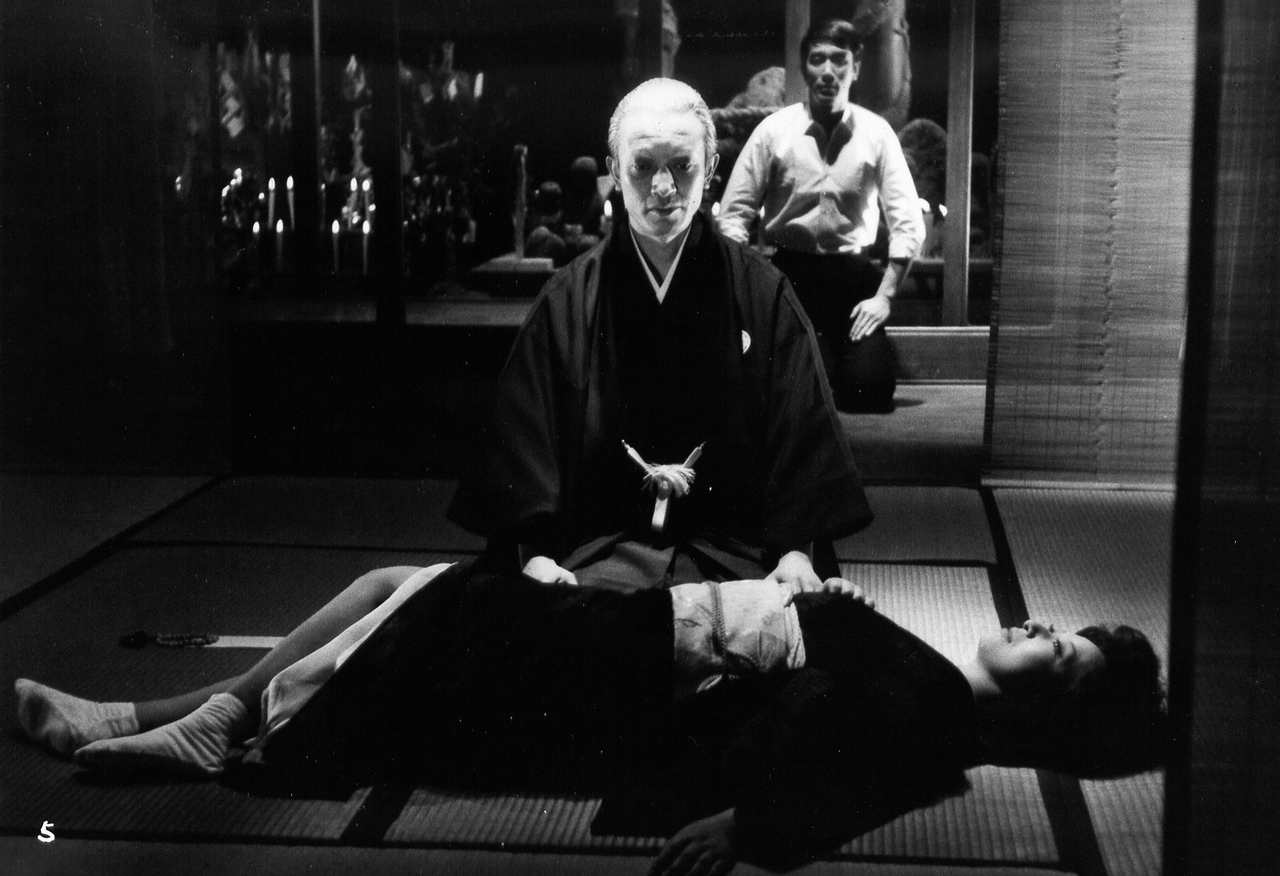
(Oshima Nagisa) · Made upon ATG's 10th anniversary, this cruel domestic melodrama sets a rigidly patriarchic, doomed family against the rise and fall of militarist Japan. Narushima's cinematography lays its tactile gaze on the pulse of the psychosexual regime of the Sakurada clan, navigating its corrosive intimacy at a sadistic distance reinforced by flat dialogue, stylized ritual, and stately sets. Takemitsu's obtrusive music gives no break from the film's insistence on the absurdity of the modern Japanese family and nation.
runtime: 123 min format: 35mm
2013-04-23 @ 7:00 PM
The Inferno of First Love
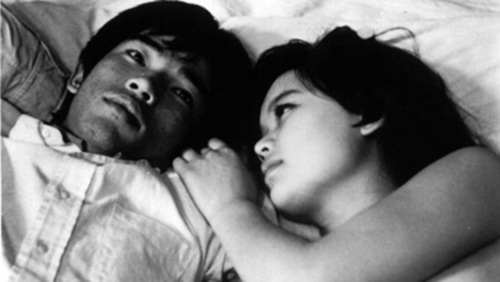
(Hani Susumu, 1968) · This film follows a young man haunted by trauma from his past as he enters a relationship with a model, Nanami. Hani got his start in documentary filmmaking, and in this project carries over his interest in working with amateur actors and in depicting the psychology of young people. Co-writer (and counter-culture icon) Terayama Shuji injects the script with a fascination with familial trauma and alternative ways for thinking about intimacy and sexual relationships. Nominated for the Golden Bear at the Berlin Film Festival.
runtime: 108 min format: 16mm
2013-04-30 @ 7:00 PM
Gushing Prayer: A Fifteen-Year-Old Prostitute
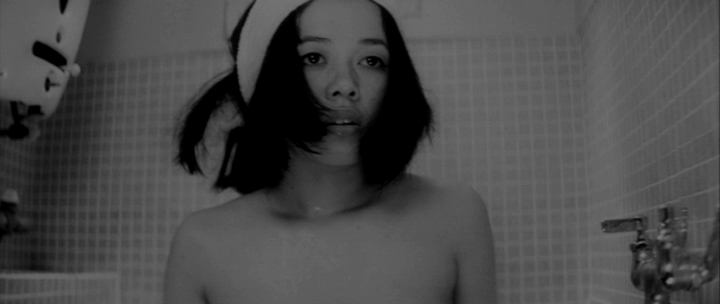
(Adachi Masao, 1971) · Inspired by the suicide notes left by a female university student and the poetry of Nagasawa Nobuko, Adachi tells of a young girl's odyssey of self-discovery and protest against adult society through the radical (dis)owning of her own sexual body by way of getting pregnant and becoming a prostitute, which culminates in thoughts of suicide. Shot in gorgeous, mesmerizing b+w CinemaScope, the film pursues an alternative visual pleasure through avant-garde cinematography.
runtime: 70 min format: 35mm
2013-05-07 @ 5:30 PM
Jashn-e-Azadi
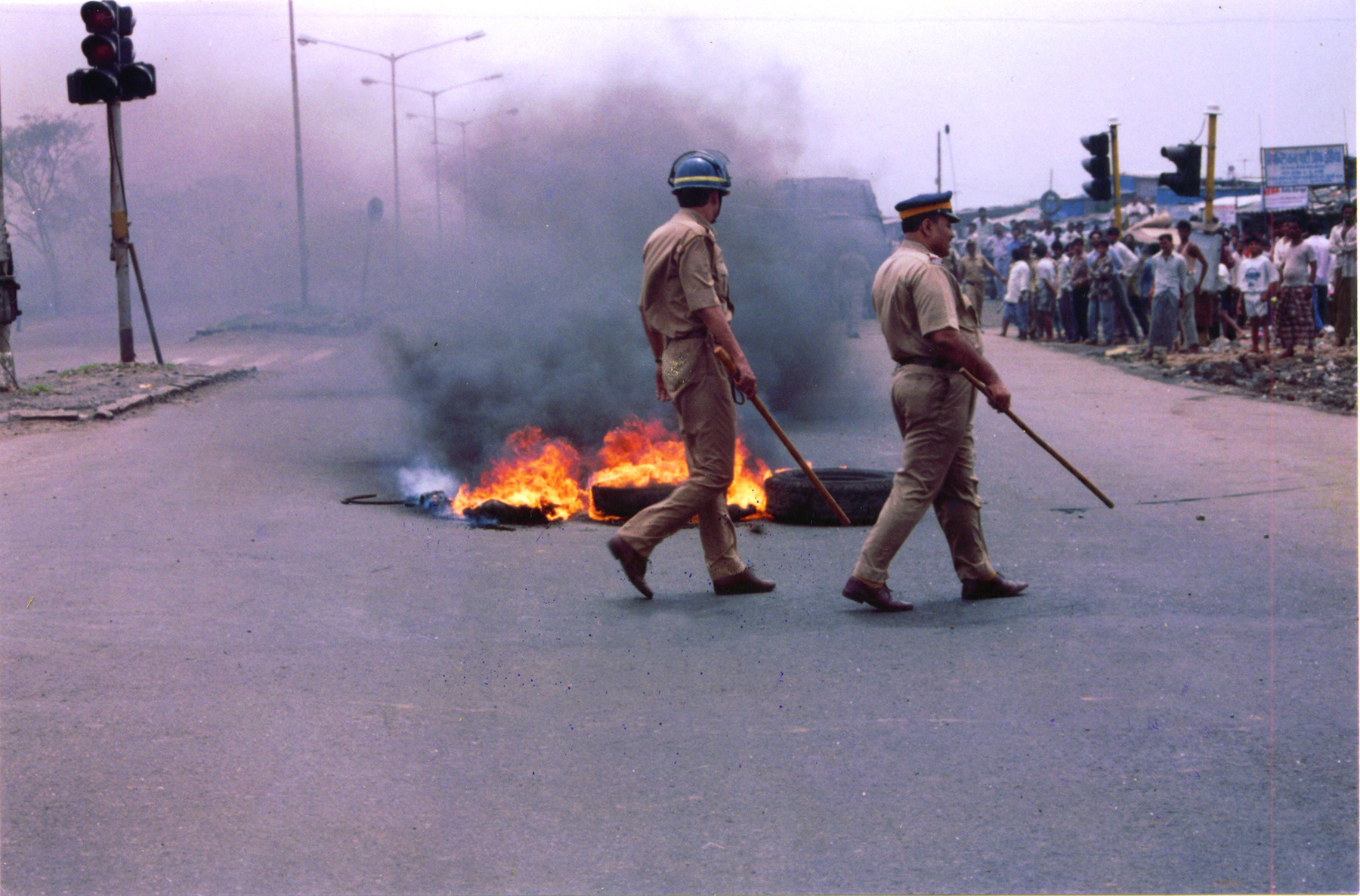
(Sanjay Kak, 2007) · It's August 15th, India's Independence day, and the Indian flag ritually goes up at Lal Chowk in the heart of Srinagar, Kashmir. This is the point from which Sanjay Kak's documentary begins to explore the many meanings of Freedom–of Azadi–in Kashmir. It begs the pertinent question of what often seems to get missed in the tangled web of this conflict. What about the people of the Valley?
runtime: 138 min format: DVD
2013-05-07 @ 9:00 PM
Silence Has No Wings
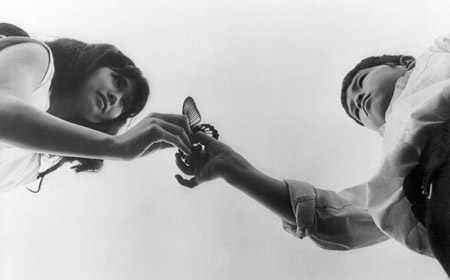
(Kuroki Kazuo, 1966) · Kuroki's first feature, as well as his first fiction film. Suzuki Tatsuya's must-see virtuoso camerawork in the almost wordless first six minutes quickly drifts you off into a reverie filled with anguished desire to enter into relation with impossible objects through a unique blend of documentary realism and poetic abstraction. The rich texture of the film is a testimony to a fortunate encounter of talents from studio-trained artisans and cutting-edge artists of various mediums.
runtime: 110 min format: 16mm
2013-05-14 @ 5:30 PM
Jai Bhim Comrade
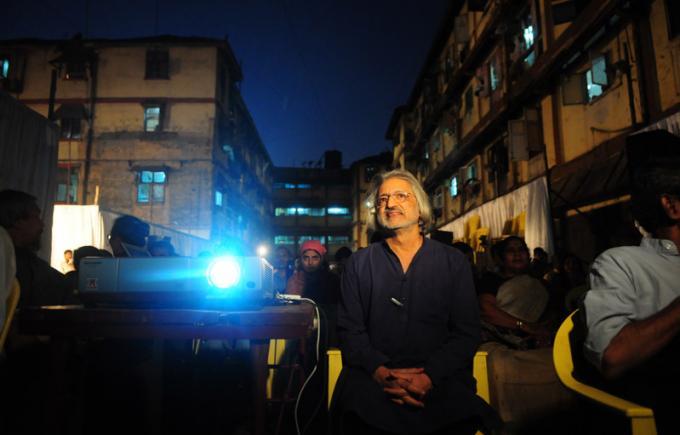
(Anand Patwardhan, 2011) · For thousands of years, India's Dalits were abhorred as &untouchables,& denied education, and treated as bonded labor. Fourteen years in the making, Anand Patwardhan's epic film details this history, the poetry and music of the Dalits, and the fight against superstition and religious bigotry.
runtime: 185 min format: DVD
2013-05-14 @ 9:00 PM
Pitfall
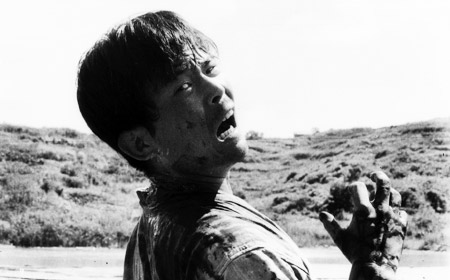
(Teshigahara Hiroshi, 1962) · Pitfall became the first of a run of feature collaborations between Teshigahara, playwright and novelist Kobo Abe, and composer Takemitsu Toru. The film, which the director once described as "documentary fantasy", abstracts and fragments the physical landscape of a coal mine shot on location, yielding its audio-visual-scape to an absurdist, existential murder mystery involving ghosts and doppelgangers. The first Japanese film to be distributed by ATG.
runtime: 97 min format: 35mm
2013-05-21 @ 7:00 PM
Minamata
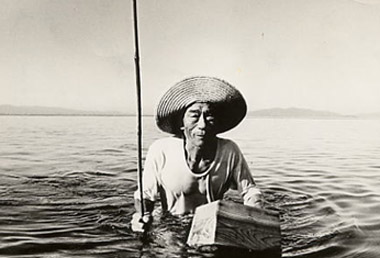
(Tsuchimoto Noriaki, 1971) · Aesthetics and ethics intersect in Tsuchimoto's famous documentary on Minamata, the place-name that became the namesake for a disease caused by corporate pollution, the clash between modern nation building and capitalism, and the structural collusion between the village and the corporation. Its exploration of the disease in and through the daily routines of the victims and their family reveals the medical and legal uncertainty in determining its real impact on people.
runtime: 167 min format: 16mm
2013-05-28 @ 7:00 PM
Pastoral: Hide and Seek
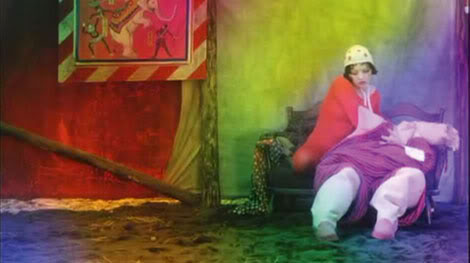
(Terayama Shuji, 1974) · Inspired by his own poetry collection published in 1964, versatile virtuoso Terayama casts his phantasmagoric vision on his own childhood and saturates it with pastel colors, dirty humor, grotesque masquerade and orgiastic eroticism. This stew of 60s and 70s counterculture features Terayama's theater troupe, singer Kan Mikami, and J.A. Seazer's psychedelic arrangements of lullabies and Buddhist hymns. It was the last film to be shown at the Shinjuku Bunka, ATG's main Tokyo theater.
runtime: 115 min format: 35mm
2013-05-28 @ 9:15 PM
American Diner

(Isaac Ottoni Wilhelm and Allison Radomski, 2012) · Created by two graduates of the University of Chicago, American Diner explores the communities fostered by three small-town restaurants scattered across the United States. Stories told by residents of rural Pennsylvania, Illinois, and Oregon are woven together to form a portrait of America today. This documentary examines the way that individual experience informs a broader view of the challenges and accomplishments that comprise daily life.
runtime: 100 min format: DVD
2013-06-04 @ 7:00 PM
Assassination of Ryoma
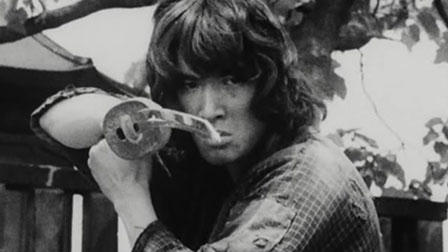
(Kuroki Kazuo, 1974) · Against the backdrop of the student movement's "failed revolution", Kuroki infuses new life into the legend of 19th-century revolutionary Ryoma Sakamoto. While renowned swordfight choreographer Kuze Ryu (Seven Samurai) was entrusted with tate scenes, Kuroki let his actors improvise most of their dialogue. Cinematographer Tamura (Lady Snowblood) shot the film in b+w 16mm using a handheld camera and blew it up to 35mm stock in order to give this historical period piece an edgy newsreel feel.
runtime: 118 min format: 16mm



